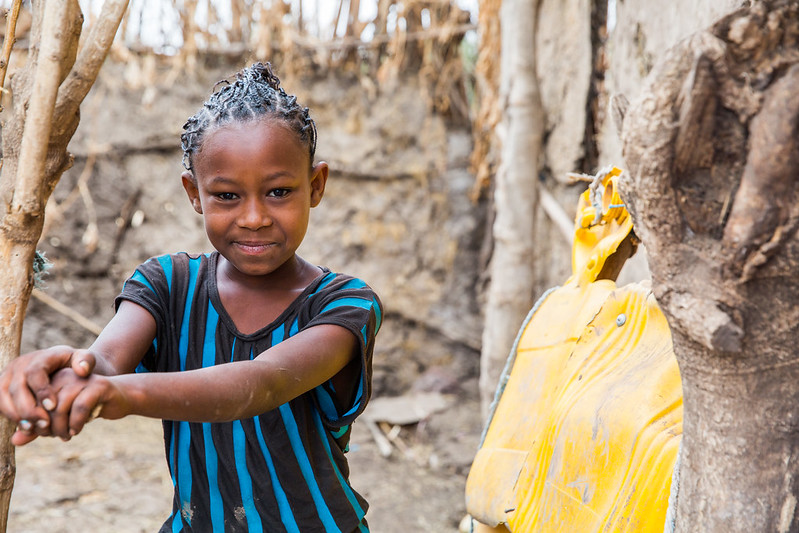The Promotion of COVID-19 Vaccines in Ethiopia

The COVID-19 pandemic has highlighted how difficult it can be for people living in remote areas to get access to vaccinations and routine immunizations. However, it has also shed light on the ways communities work together to overcome obstacles and keep themselves and their loved ones healthy. Ethiopia is one country that is having a challenging time vaccinating its citizens. Luckily, community mobilization may provide the answer to distributing COVID-19 vaccines in Ethiopia.
How Ethiopia Distributes COVID-19 Vaccines
Promoting COVID-19 vaccines in Ethiopia is no exception. Many Ethiopian children often miss their vaccinations because they live in remote villages. Mothers have to walk for hours to reach public community spaces where immunizations take place. However, the help of volunteers is proving to be crucial in the vaccination of children and the spread of essential information about COVID-19 vaccines in Ethiopia.
Ethiopia comprises several kebeles, which are small administrative districts. Within each kebele, there are “health posts” where health workers distribute vaccinations. However, many people cannot reach these posts because of geographical challenges and uncertain weather conditions. Therefore, health workers have taken it upon themselves to travel, by foot, to the most remote villages in each kebele. These walks can easily take over four hours one way, especially if the hilly terrain is muddy from recent rain. Regardless, these workers go anyway since they plan and communicate about these trips in advance. The districts send vaccines to health centers within each kebele via ambulances and motorcycles. Then, health workers go to the health posts to pick up the doses.
The Importance of Transporting Vaccinations
Many people do not go to the vaccination posts. Instead, they wait for the health workers to reach their closest destinations. It is usually up to the health workers and community mobilizers to ensure that children receive their vaccines. Even though the community is aware of how crucial vaccinations are, very few have their children receive vaccinations. The health stations do vaccination performance evaluations every month; these evaluations reveal that dozens of children miss their vaccinations. Thus, the on-foot outreach trips of these health workers are absolutely essential.
Health workers analyze the monthly evaluations and compile lists of which children have missed their vaccinations. They then arrange the supplies to give the needed doses. According to the evaluations, many of these children miss their vaccinations because it is difficult for mothers to make the journey to the health posts where vaccinations take place. Additionally, mothers often give birth at home with traditional birth attendants, meaning they do not register their children for immunizations. In addition to transporting vaccination doses, health workers are responsible for running in-service and vaccination outreach programs at marketplaces, churches and schools to share accurate information about COVID-19, the COVID-19 vaccine in Ethiopia specifically and other important immunizations. They work with community elders and religious leaders to run these meetings.
Obstacles to COVID-19 Prevention
These efforts were not easy to implement, however. Many people living in Ethiopia’s remote villages reacted to the COVID-19 pandemic with denial. It was also incredibly difficult to implement COVID-19 prevention policies due to Ethiopia’s weak health system and infrastructure and difficulties with population mobility. It was not very challenging to practice regular handwashing, but it was difficult to implement social distancing policies in religious institutions, marketplaces and other meeting areas. Additionally, a lack of trust in the media and government posed challenges to implementing these policies.
Despite these obstacles, the efforts of health workers and volunteers have proven successful, as vaccination rates are increasing. Groups of volunteer women living in these remote villages are also helping by promoting public trust in the COVID-19 vaccine. When COVID-19 first broke out, many villagers were in denial about its existence. However, a two-day social mobilization training on COVID-19 organized by UNICEF helped curb the initial spread, encourage community members to take the virus seriously and implement prevention measures. The training also served to teach volunteers who now visit other homes to share information on family health, environmental hygiene and sanitation. By getting their COVID-19 vaccinations, health workers and volunteers set examples for their communities.
Overall, the efforts of health workers and volunteers are proving successful as vaccination rates are increasing. Also, intense community mobilization and engagement, with support from UNICEF, the Ethiopian government and district health offices, further encourage vaccine uptake. Additionally, it shows just how important it is to mobilize and communicate relevant and accurate health information for the good of promoting public health.
– Shiloh Harrill
Photo: Flickr
